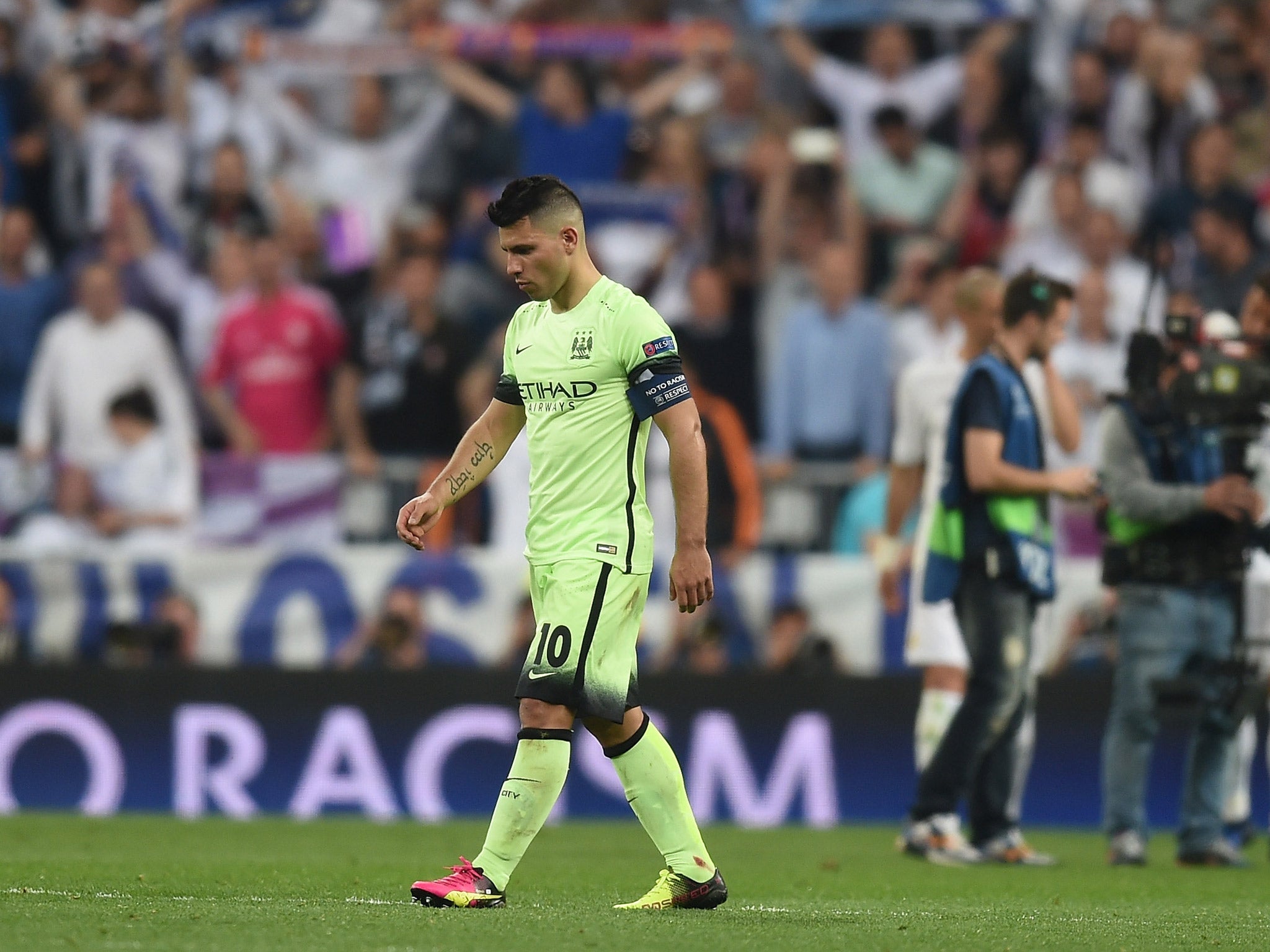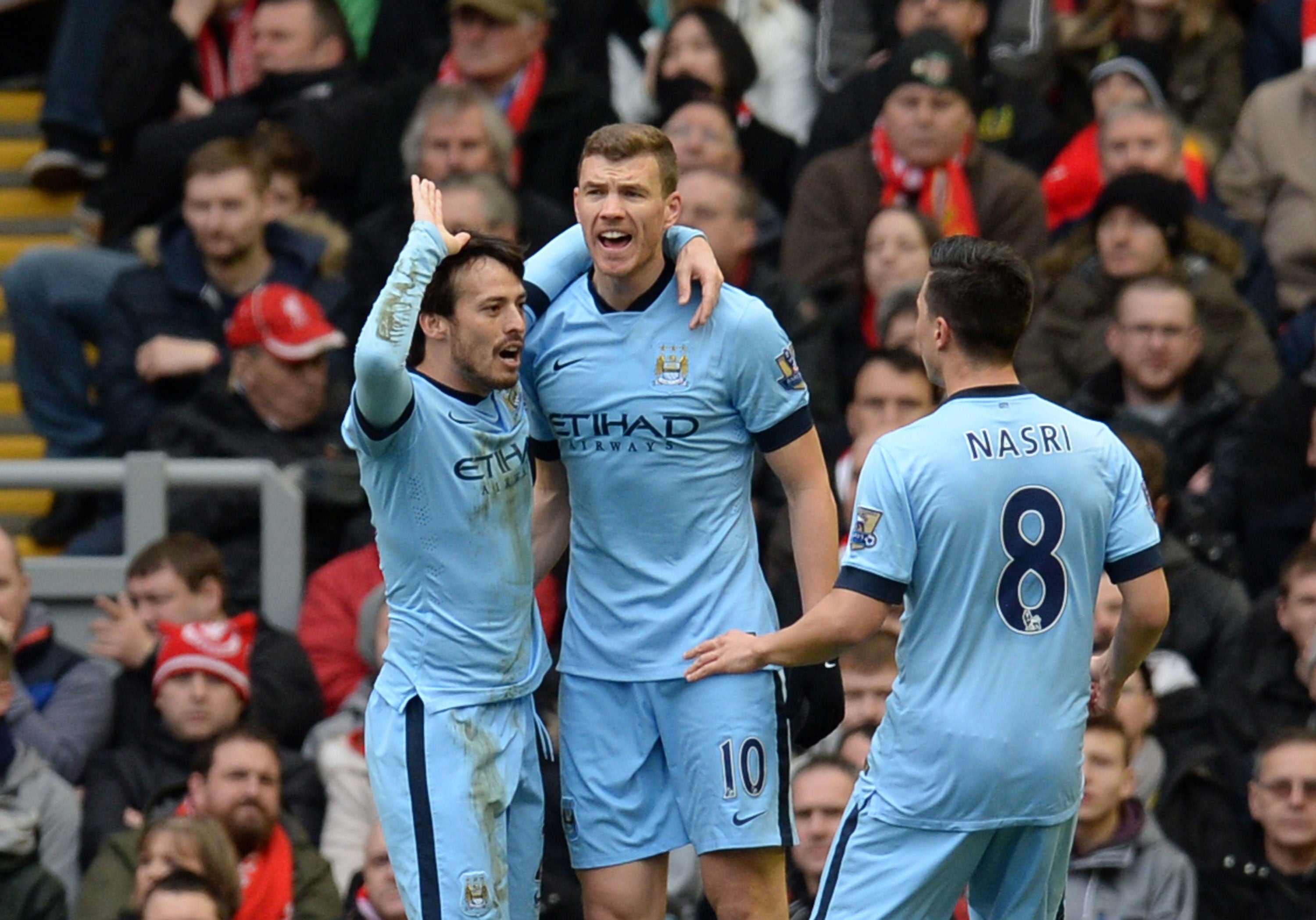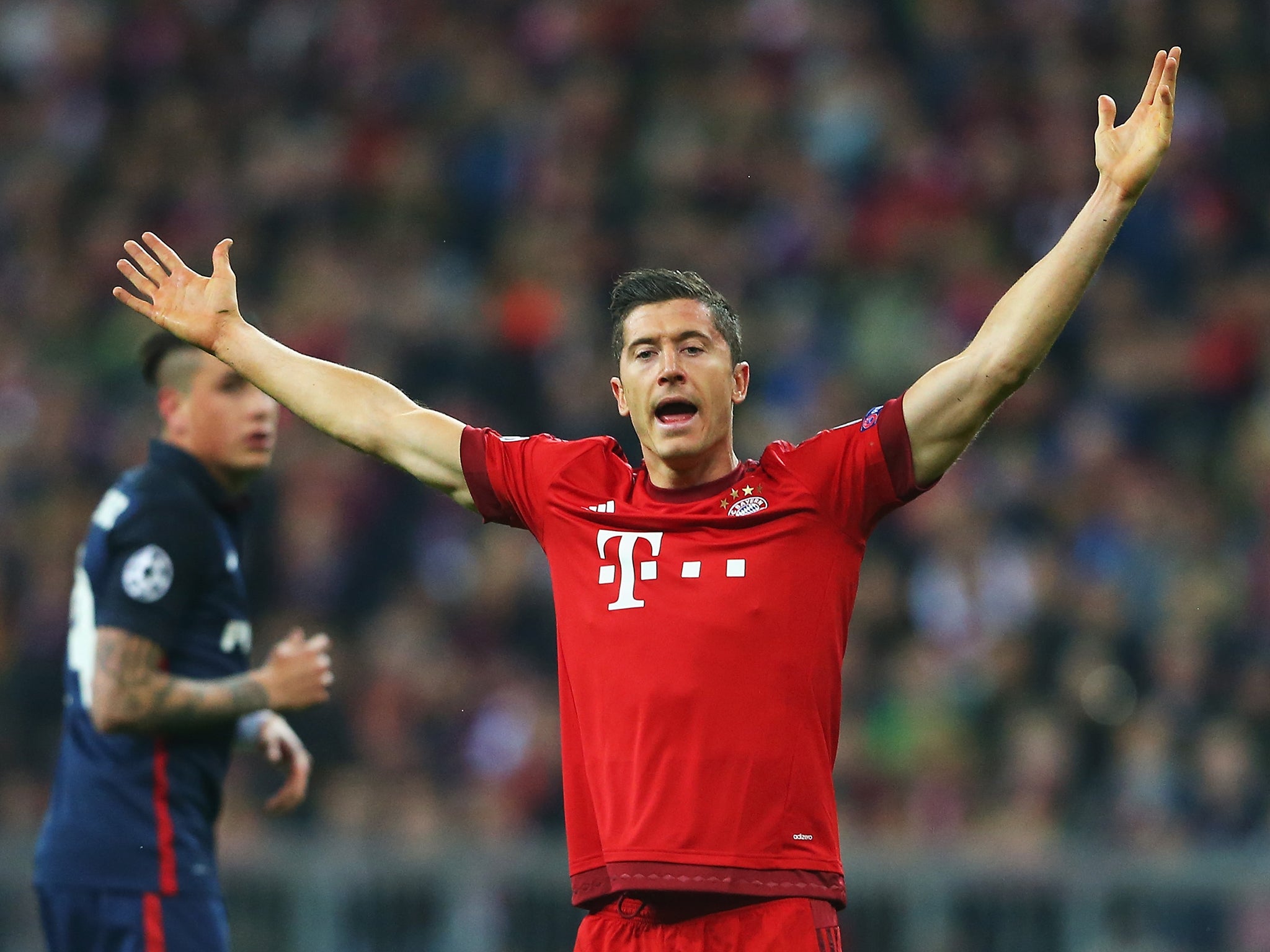Manchester City have forgotten how to score against the best - they're too predictable, says Danny Higginbotham
INSIDE FOOTBALL: City's record against theiur top-four rivals reveals why the best squad in the Premier League could miss out on Champions League qualification

Your support helps us to tell the story
From reproductive rights to climate change to Big Tech, The Independent is on the ground when the story is developing. Whether it's investigating the financials of Elon Musk's pro-Trump PAC or producing our latest documentary, 'The A Word', which shines a light on the American women fighting for reproductive rights, we know how important it is to parse out the facts from the messaging.
At such a critical moment in US history, we need reporters on the ground. Your donation allows us to keep sending journalists to speak to both sides of the story.
The Independent is trusted by Americans across the entire political spectrum. And unlike many other quality news outlets, we choose not to lock Americans out of our reporting and analysis with paywalls. We believe quality journalism should be available to everyone, paid for by those who can afford it.
Your support makes all the difference.Manchester City did not score in 180 minutes against Real Madrid, and looked as if they could have played another 180 minutes without doing so. But while they were beaten by a better side, the tie did reveal what I think has been City’s biggest problem this season: they have lost the ability to score against good teams.
From seven league games against the rest of the top five – Leicester City, Tottenham Hotspur, Arsenal and Manchester United – City have scored just four goals, and two of them were late consolations in games they had already lost. From those seven games City have taken just two points. That explains why the best squad in the country is desperately fighting to qualify for next season’s Champions League.
City host Arsenal at the Etihad Stadium on Sunday afternoon and they will need to reverse this trend and get a result, or else they will be at risk of playing in next season’s Europa League.
The problem is more complex than a simple inability to score goals. A quick look at the Premier League table shows that they have more in the ‘Goals For’ column than anyone else, with 68, ahead of Tottenham with 67 and Leicester with 64. But just look who those goals have come against.
This season City have beaten Newcastle United 6-1, Bournemouth 5-1 and 4-0, Crystal Palace 4-0, Sunderland 4-1, Aston Villa 4-0 and Stoke City 4-0.
But against the top teams, City’s direct rivals, it is a different story. They find it very difficult to score, especially in the decisive early stages of the game. Look at the four goals they have scored in those seven crucial matches. Just one came in the first 70 minutes, which was when Kevin De Bruyne put City 1-0 up at Tottenham in September, after 25 minutes. City went on to lose 4-1.
Then there was an 82nd minute consolation in a 2-1 defeat at Arsenal in December and an 87th minute consolation in the 3-1 defeat to Leicester in February. The next weekend City equalised on 74 minutes against Spurs, but lost 2-1.
What this tells me is that City fail to take the initiative, or take the game by the scruff of the neck, when they play these sides. Even looking at all 68 of their league goals, just 12 have come in the first 20 minutes. So why can’t City start games as quickly as they used to?
I believe that this is because City have become too predictable, which means that they are too easy to stop, at least for the well-organised defences at the top of the Premier League. Given the quality City have at their disposal – as I said, the best squad in the league – they go into almost every game as favourites. That puts the onus on them to attack, and on the opposition to relinquish an area of the pitch to ensure that they are strong elsewhere.
It is an easy decision to know how best to defend against City. All of their best players – Sergio Aguero, David Silva, Yaya Toure and Kevin De Bruyne – want to play centrally and attack through the middle of the pitch.
This means that opponents know that they have to defend narrowly, stop City through the middle and direct them into wide areas instead. Opponents will start games against City with their manager’s instructions ringing in their ears: “Send them out wide, send them out wide, send them out wide.”
City will often have the wide areas to themselves, and opponents will allow them to get crosses into the box. The top crossers in the Premier League this season are Crystal Palace, Southampton, West Bromwich Albion and Aston Villa, four teams who want to get crosses into the box, and Manchester City, who are forced to by opponents.
But opponents are relaxed about this, because they are confident that their centre-halves will be able to win the headers when the ball comes in. This is because this City team has far less aerial threat than most sides at the top of the game in England or Europe.

Sergio Aguero is not the tallest and what City desperately lack is a striker with aerial presence who could turn more of these crosses into goals in big games. While they have scored some goals from crosses this season, they have not against the top teams. But City did have that threat in the past with Alvaro Negredo and Edin Dzeko, which is why I was so surprised when City sold Dzeko last summer but did not replace him.
Bayern Munich have Robert Lewandowski and Thomas Mueller. Atletico Madrid have Fernando Torres. Real Madrid have Cristiano Ronaldo, Gareth Bale and Karim Benzema. Tottenham have Harry Kane. But City have no-one like that. Which is why I wonder if Pep Guardiola may try and bring Lewandowski with him from Bayern, as expensive as he would be.

One of the first teams to expose this weakness in City was Arsenal, in January last year. They went to the Etihad Stadium and played in a way that few expected, defending deep and narrow, sending City into wide areas and frustrating them. Francis Coquelin was drafted into midfield and, along with Santi Cazorla and Aaron Ramsey, he helped to stop City from playing through the middle. City’s front four that day was Aguero, Silva, Jesus Navas and James Milner, and their crosses into the box came to little.
That day it felt as if the penny had dropped for Arsenal, who defended more cannily than they have been known for. Their struggles this season, though, show that they have not entirely learnt their lessons. They are hoping to stay in third place, having missed out on the title again.

But Arsene Wenger knows how to beat City. If they follow the same plan – defending narrowly, forcing City out wide – then they should be able to frustrate them again. City need to do what they have barely been able to against well-organised defences this season, and find a way round.
Join our commenting forum
Join thought-provoking conversations, follow other Independent readers and see their replies
Comments